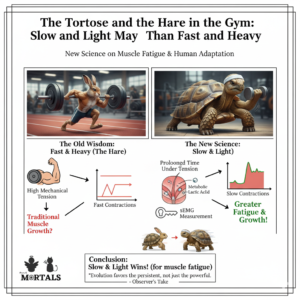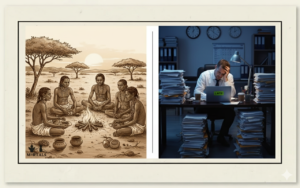In this groundbreaking 1925 essay, French sociologist Marcel Mauss explores the multifaceted nature of gift-giving in “archaic” societies. He argues that gift exchange is not simply an economic transaction but a complex social phenomenon imbued with obligations to give, receive, and reciprocate. These obligations, according to Mauss, create and maintain social bonds, express power dynamics, and even have spiritual connotations.
Additional Details:
- Year of Publication: 1925
- Relevance: Mauss’s work remains foundational in understanding the social significance of gift-giving,challenging purely economic views of exchange. His insights into reciprocity, obligation, and the embeddedness of exchange in social relations are relevant across various disciplines, including anthropology, sociology, and economics.
- Context: Mauss drew upon ethnographic accounts from various cultures, notably the potlatch tradition of the Pacific Northwest, to develop his theory of the gift. His work is situated within a broader intellectual tradition that sought to understand the social and cultural dimensions of economic life, contrasting with the prevailing focus on individual self-interest and market exchange.
In-Depth Exploration:
Mauss’s central argument is that the act of giving a gift entails more than the mere transfer of an object. It carries with it a “spirit of the gift” (hau in Maori), an intangible force that binds the giver and receiver in a web of social obligations. The obligation to give, to receive, and to reciprocate creates a cycle of exchange that fosters social solidarity and reinforces relationships.
Mauss identifies three key obligations in gift exchange:
- The Obligation to Give: Giving a gift demonstrates generosity, establishes social status, and creates a sense of indebtedness in the recipient. Refusing to give can be seen as a sign of hostility or social inferiority.
- The Obligation to Receive: Receiving a gift acknowledges the giver’s gesture and signals a willingness to engage in the social relationship. Refusing a gift can be seen as an insult or a rejection of the offered bond.
- The Obligation to Reciprocate: The most crucial obligation is to reciprocate the gift in a timely and appropriate manner. This ensures the continuation of the exchange cycle and maintains the social balance between giver and receiver. Failure to reciprocate can lead to a loss of face and damage to social standing.
Mauss also explores the symbolic and spiritual aspects of gift-giving, highlighting how gifts can embody the giver’s identity, mana (spiritual power), or even a part of their soul. The act of exchanging gifts can thus be seen as a way of communicating and transferring social and spiritual values.
Critical Analysis:
“The Gift” has been widely praised for its profound insights into the social and cultural significance of gift exchange. Mauss’s work challenged the prevailing economic paradigm by demonstrating that exchange is not solely driven by self-interest but is deeply embedded in social relations and cultural meanings.
However, Mauss’s analysis has also faced criticism. Some scholars argue that his focus on “archaic” societies overlooks the complexity and diversity of gift-giving practices in contemporary societies. Others contend that his theory can be overly deterministic, downplaying the role of individual agency and choice in gift exchange.
Applications and Relevance:
Despite these criticisms, Mauss’s work remains highly relevant today. His insights into the power of reciprocity and the social meanings embedded in gift exchange can be applied to various contexts, from understanding consumer behavior and marketing strategies to analysing political patronage and diplomatic relations.
Furthermore, Mauss’s work has implications for understanding the role of gift-giving in building social capital, fostering trust, and creating a sense of community. His ideas can also shed light on the ethical dimensions of gift exchange, raising questions about the motivations behind giving and the potential for exploitation or manipulation.
In conclusion, Marcel Mauss’s “The Gift” is a seminal work that has transformed our understanding of the social and cultural significance of gift-giving. His insights into reciprocity, obligation, and the embeddedness of exchange in social relations continue to resonate today, reminding us that even the seemingly simple act of giving a gift can be a powerful expression of social bonds and cultural values.
About the Author and His Other Works:
Marcel Mauss (1872-1950), a French sociologist and anthropologist, is considered a foundational figure in both disciplines. He was the nephew of the renowned sociologist Émile Durkheim and a key member of the influential Année Sociologique group. Mauss’s work bridged the gap between sociology and anthropology, focusing on the social and cultural dimensions of economic life, religion, and the body.
While “The Gift” is Mauss’s most famous work, he also made significant contributions in other areas:
- “Essay on the Nature and Function of Sacrifice” (1898, with Henri Hubert): This work explored the role of sacrifice in various societies, analysing its social and religious functions.
- “Primitive Classification” (1902, with Émile Durkheim): This study examined how different societies categorise and classify the world around them, revealing the social and cultural underpinnings of knowledge systems.
- “A General Theory of Magic” (1902, with Henri Hubert): This influential work explored the nature and function of magic in different cultures, analysing its relationship to religion and social control.
- “The Techniques of the Body” (1934): This essay examined the social and cultural shaping of bodily practices,such as walking, eating, and sleeping, demonstrating how even seemingly natural actions are culturally learned and imbued with meaning.
- “Sociology and Anthropology” (1950): This collection of essays showcases Mauss’s wide-ranging interests and his unique approach to understanding social phenomena.
Mauss’s work has had a profound and lasting impact on social sciences, influencing generations of scholars and shaping our understanding of the complex relationship between individuals, society, and culture.




